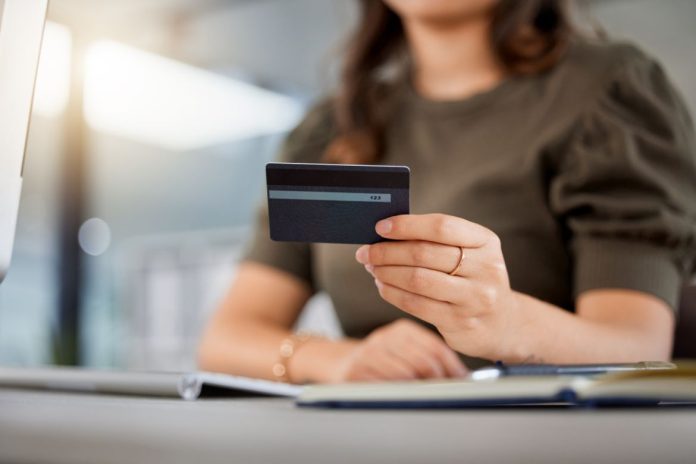Premium Bills. Credit card fraud is a growing concern in today’s digital age, and one of the most common forms of fraud is credit card cloning. When your credit card is cloned, a fraudster makes an identical copy of your card, usually using your card’s information for unauthorized transactions. This can happen without you ever knowing—until you notice suspicious activity on your account. It’s crucial to catch the signs of credit card cloning early to prevent further damage. Here are some telltale signs that your credit card has been cloned.
1. Unexpected Charges or Transactions
The most obvious sign of credit card cloning is unfamiliar or unauthorized charges. If you notice transactions on your credit card statement that you don’t recognize, it’s important to investigate further. Cloners often use the information to make small, unauthorized purchases at first, testing the waters to avoid detection.
What to do: Regularly review your credit card statements for any unusual purchases. If you spot something unfamiliar, report it immediately to your credit card issuer.
2. Declined Transactions for No Apparent Reason
If your card is repeatedly declined despite having sufficient funds or credit available, your credit card issuer may have already flagged the account due to suspicious activity. Sometimes, after cloning a card, fraudsters may use it frequently, and your bank might temporarily block the card for your protection.
What to do: Contact your bank or credit card issuer to check if they’ve placed any restrictions on your card due to suspicious activity.
3. Unexplained Charges at Unfamiliar Locations
Cloners can use your card details across various online or physical stores. If you notice transactions from places you’ve never shopped at or in countries you’ve never visited, this could be a sign that your card has been cloned.
What to do: Check your purchase history and compare it with the charges. Report any foreign or unfamiliar transactions immediately.
4. Receiving Fraudulent Calls or Emails
If you suddenly start receiving calls or emails from your bank, asking about unusual activity or verifying transactions you didn’t make, it’s possible that your credit card has been cloned. Fraudsters often make purchases and then try to test the validity of the card by contacting the bank for approval.
What to do: Be cautious of phishing attempts and verify the authenticity of any unsolicited messages. If you suspect fraud, contact your bank directly using a verified number.
5. Changes in Credit Card Balance Without Spending
If your credit card balance increases unexpectedly, but you haven’t made any recent purchases, it could indicate that your card has been cloned and used without your knowledge. Fraudulent charges will directly impact your balance, and often, these charges accumulate without your awareness.
What to do: Keep track of your balance and spending. If you notice discrepancies, immediately report the issue to your bank.
6. Problems with Your Credit Score
In some cases, cloned cards can lead to unauthorized debts accumulating under your name. If these debts go unpaid, they may be reported to credit bureaus, negatively impacting your credit score. If you notice a drop in your credit score without any explanation, cloning could be the cause.
What to do: Regularly monitor your credit score using free services. If you notice any drastic changes, investigate the cause, including any fraud-related activities on your card.
7. Unusual Card Activity While Traveling
When traveling, you may notice foreign transactions or attempts to use your card in locations where you haven’t visited. This could be a sign of cloning. Fraudsters may use your card details to purchase things online or in person without your knowledge while you’re away.
What to do: Always notify your bank before traveling and use travel alerts. If your card is used in an unfamiliar location, report it immediately.
8. Getting New Cards Without Request
If you suddenly receive a new credit card in the mail that you didn’t request, it’s possible that the bank has flagged your old card for suspicious activity. Sometimes, banks will issue a new card to prevent further unauthorized transactions if they suspect cloning.
What to do: Contact your credit card issuer to confirm why a new card was issued and ask if there were any security breaches involving your account.
What to Do If Your Credit Card Has Been Cloned?
If you notice any of the signs listed above, here’s what you should do immediately:
- Contact Your Credit Card Issuer: Report the fraud and request a new card. Your bank will usually cancel the fraudulent charges and issue a replacement card.
- Dispute Unauthorized Charges: File a dispute for any unauthorized transactions. You may need to provide supporting evidence.
- Monitor Your Accounts: Keep a close eye on your account statements and credit reports for any further fraudulent activities.
- Change Your Online Passwords: If you suspect your credit card details were compromised online, change your passwords and consider enabling two-factor authentication.
Prevention Tips
To reduce the risk of your credit card being cloned, follow these precautions:
- Use your credit card only on trusted and secure websites.
- Avoid sharing your card details over unsecured or public Wi-Fi networks.
- Use strong and unique passwords for online banking and shopping accounts.
- Consider setting up transaction alerts to monitor your spending in real time.
- Regularly check your credit report for signs of unauthorized activity.








